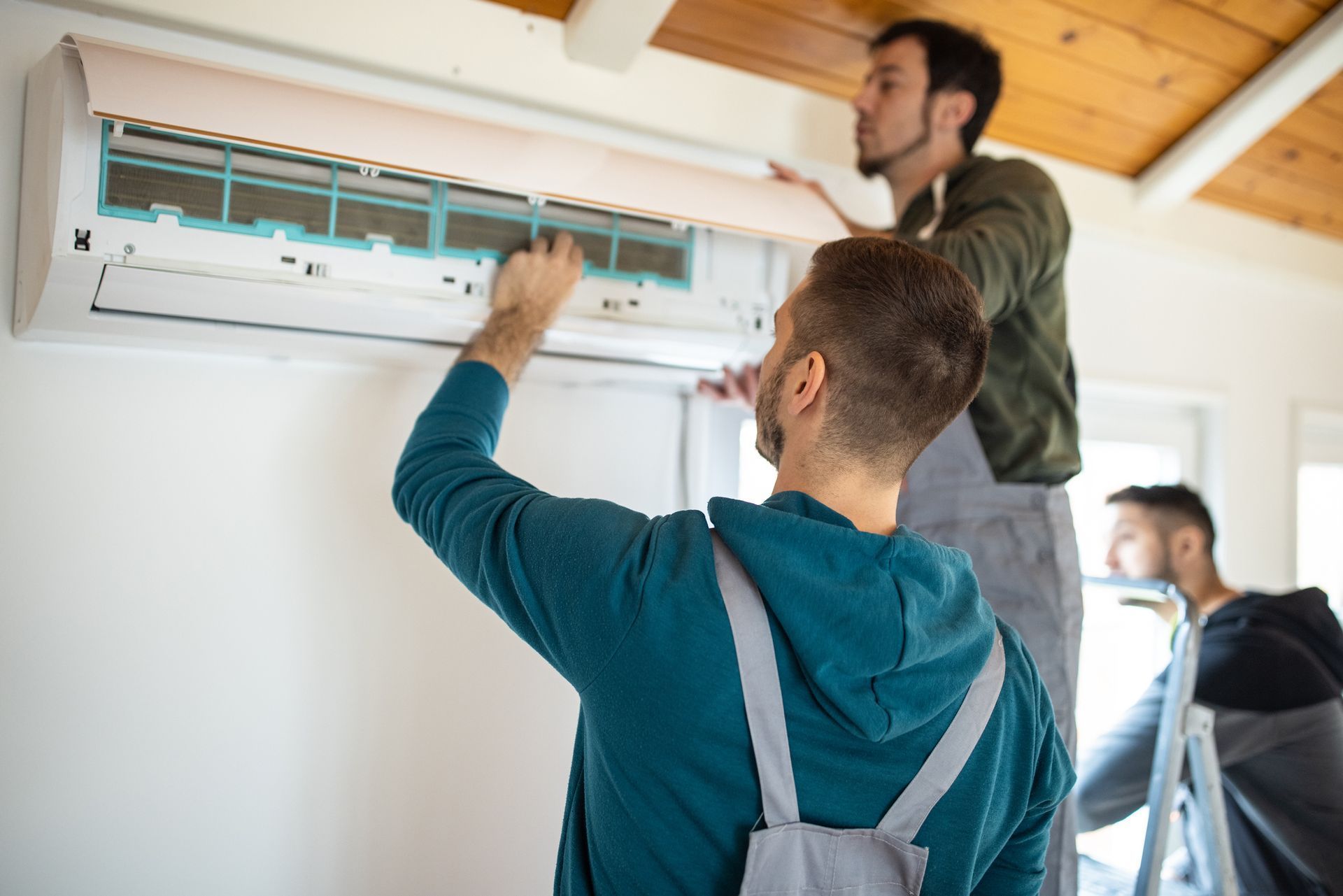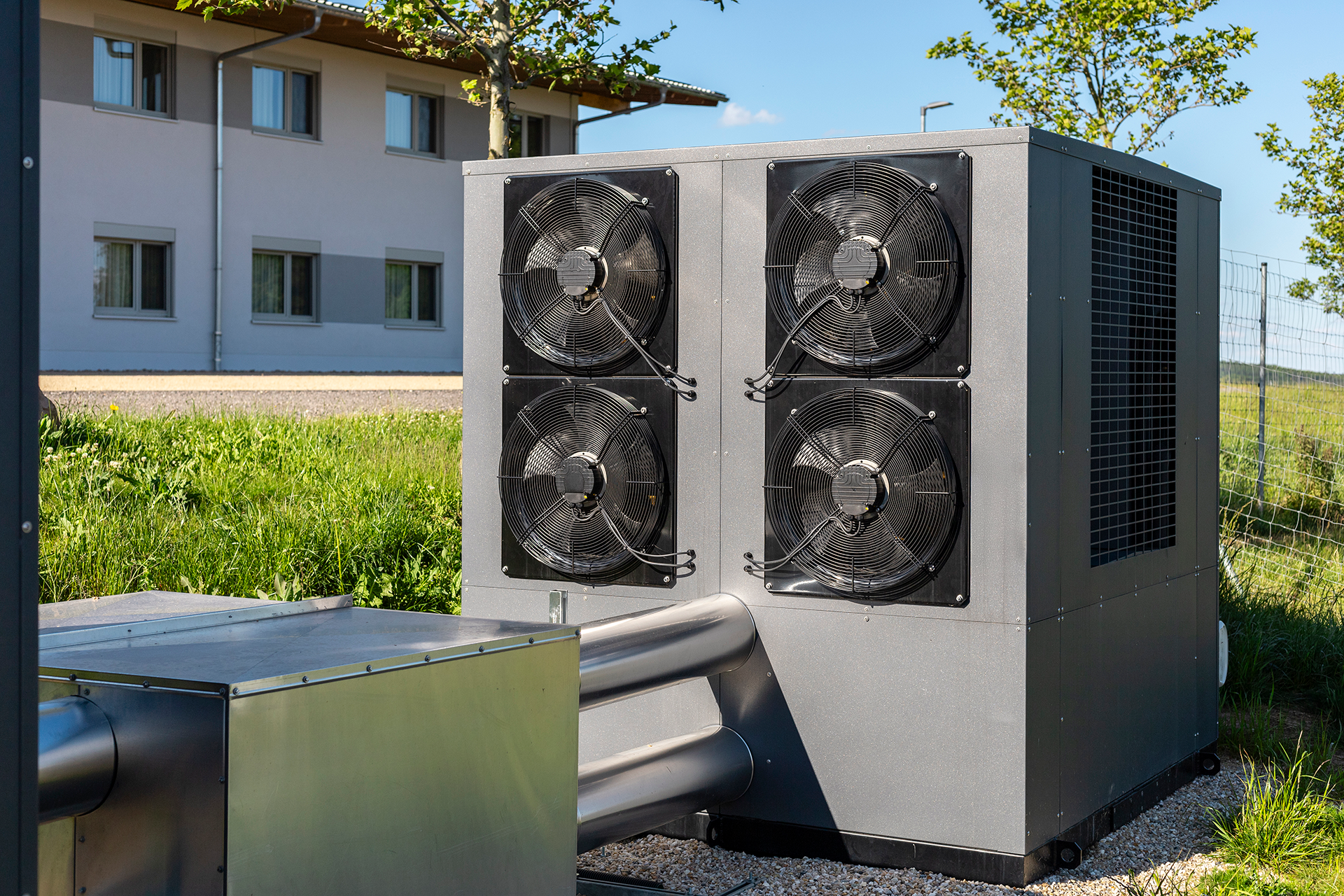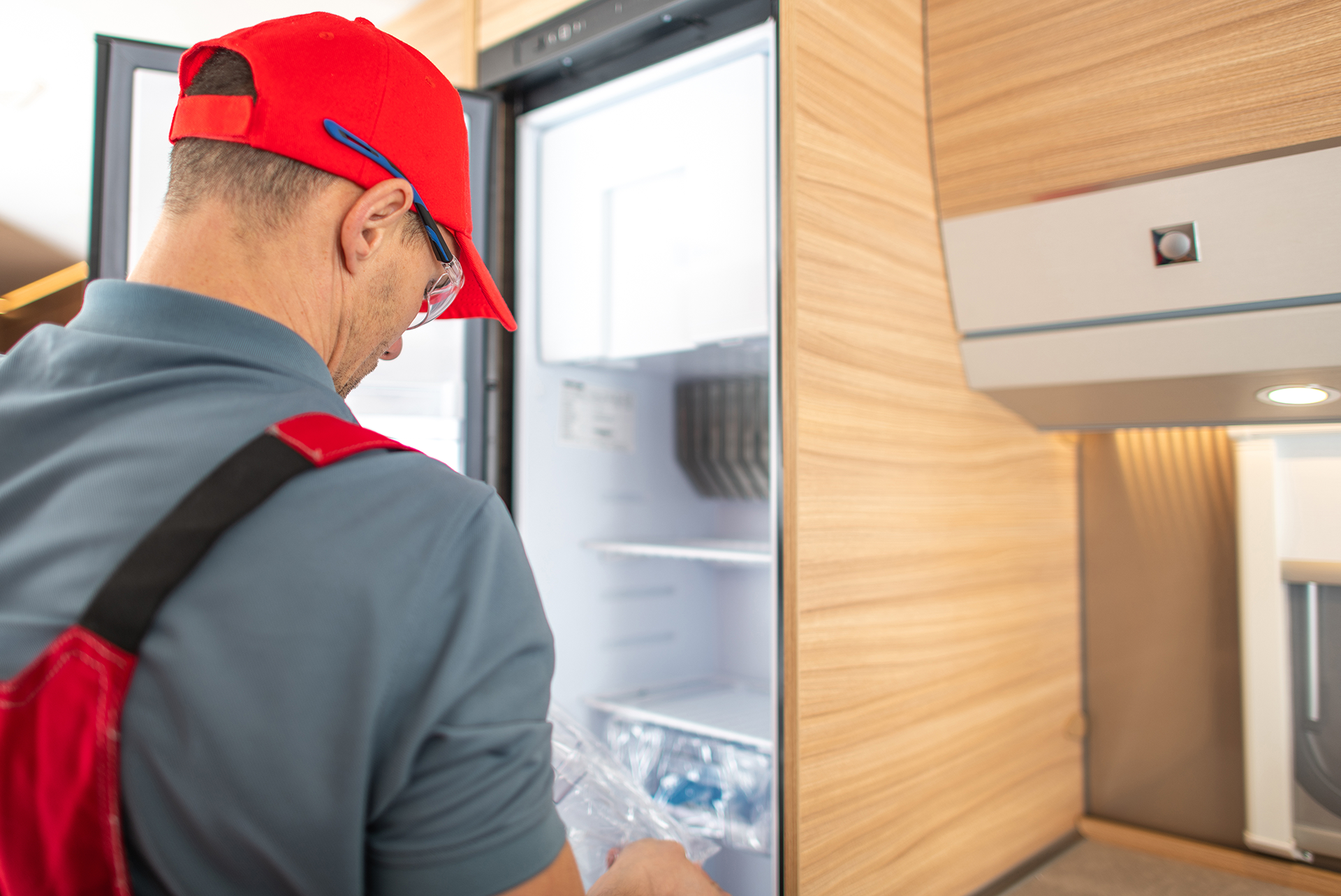Running a franchise HVAC business means juggling a lot-from managing crews and equipment to navigating complex client demands. One thing that often gets overlooked until it’s too late is insurance. Without the right coverage, a single accident or claim can cost far more than the initial premium. Understanding the specific risks and insurance needs unique to franchise HVAC operations is crucial for protecting your business and staying compliant.
Understanding the Unique Risks of Franchise HVAC Businesses
HVAC contractors face a range of daily hazards that can quickly turn into costly claims. Whether it’s a technician injuring themselves while lifting heavy equipment or liability claims stemming from system failures, the risks are real and varied. For franchise businesses, these risks can multiply due to the scale of operations and the need to maintain brand standards across multiple locations.
Equipment theft from service vehicles and job sites is another common concern. Since franchise HVAC businesses often deploy multiple trucks and crews, the chances of stolen tools or parts increase. This not only disrupts work but can also lead to expensive replacements and downtime. Additionally, the financial implications of such thefts extend beyond mere replacement costs; they can also affect the franchise's reputation and customer trust, as delays in service can lead to dissatisfaction among clients.
Because of these factors, insurance agents must tailor coverage to the specific challenges franchise HVAC businesses face. This means going beyond basic policies to include protections that address workplace injuries, property damage, and theft risks. Furthermore, it’s essential for franchise owners to invest in robust training programs for their employees, focusing on safety protocols and proper equipment handling. Such initiatives not only mitigate risks but also foster a culture of safety that can enhance employee morale and productivity.
Moreover, the dynamic nature of the HVAC industry means that franchise businesses must stay updated on the latest technological advancements and regulatory requirements. For instance, the increasing emphasis on energy efficiency and environmentally friendly practices can introduce new liabilities, as businesses must ensure compliance with evolving standards. Keeping abreast of these changes can be challenging but is crucial for minimizing risks and maintaining a competitive edge in the market.
For more insight into the risks HVAC contractors face daily, you can explore
this industry report.
HVACInsure is fully licensed and permitted to sell contractor and commercial insurance in USA.
We proudly serve clients throughout the United States and maintain partnerships with local Texas insurance carriers to ensure HVAC professionals receive compliant, affordable, and comprehensive coverage that meets project and regulatory requirements.
How Much Does Insurance Cost for Franchise HVAC Businesses?
Insurance costs for HVAC businesses vary widely depending on coverage types, location, and the size of the operation. On average, annual premiums can range from $652 to over $5,000. This broad range reflects differences in policy limits, state regulations, and the sub-industry within HVAC services.
For example, general liability insurance for an HVAC contractor in Colorado typically costs between $500 and $700 annually. However, franchise businesses with multiple locations or larger payrolls will see higher premiums due to increased exposure. Additionally, factors such as the age of the business, the claims history, and the specific services offered can also influence the cost of insurance. For instance, businesses that provide specialized services like refrigeration repair may face different rates compared to those focusing solely on heating and cooling.
Understanding these costs upfront can help franchise owners budget effectively and avoid surprises. It’s also worth noting that investing in comprehensive coverage can save money in the long run by preventing expensive claims and legal fees. Furthermore, many insurance providers offer discounts for businesses that implement safety training programs or maintain a good claims history, which can significantly lower premiums over time. Franchise owners should also consider the potential need for additional coverage types, such as workers' compensation or commercial auto insurance, which can further impact their overall insurance budget.
To get a clearer picture of what to expect, check out
this detailed cost breakdown. By comparing quotes from multiple insurers and understanding the nuances of each policy, franchise owners can make informed decisions that align with their business needs and financial goals. Additionally, consulting with an insurance broker who specializes in franchise operations can provide valuable insights and help navigate the complexities of business insurance.
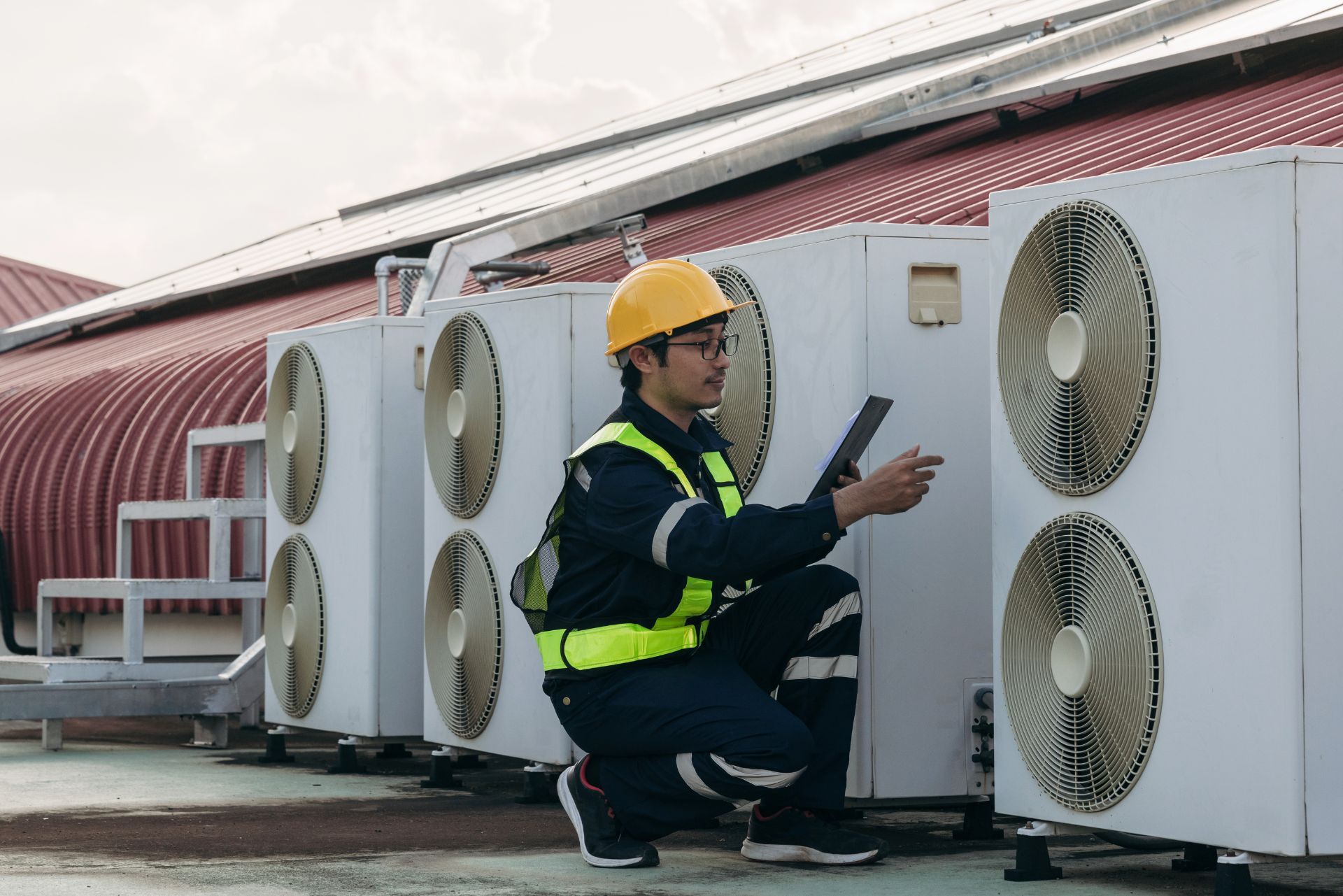
Essential Insurance Coverage Types for Franchise HVAC Businesses
General Liability Insurance
This is the foundation of any HVAC business insurance plan. It covers third-party bodily injury, property damage, and legal defense costs. For franchise businesses, general liability is critical because it protects against claims that could arise at any location or job site. Additionally, it can cover instances such as slip-and-fall accidents that may occur during service calls, ensuring that your business remains financially secure in the face of unexpected incidents. By investing in this insurance, franchise owners can focus on their operations without the constant worry of potential lawsuits that could arise from everyday business activities.
Workers’ Compensation
Given the physical nature of HVAC work, injuries on the job are common. Workers’ compensation insurance covers medical expenses and lost wages for employees hurt while working. Franchise owners should ensure their policies meet state requirements and adequately cover all technicians across locations. Furthermore, implementing a comprehensive safety training program can help reduce the frequency of workplace injuries, which not only protects employees but can also lead to lower insurance premiums over time. By fostering a culture of safety, HVAC franchises can enhance employee morale and productivity, ultimately benefiting the bottom line.
Commercial Auto Insurance
Many HVAC franchises rely heavily on service vehicles. Commercial auto insurance protects against accidents involving these vehicles, including damage and liability claims. Since tools and equipment are often stored in trucks, some policies also cover theft or damage to these items. It's important for franchise owners to regularly assess their vehicle fleet and consider additional coverage options, such as roadside assistance or rental reimbursement, to ensure they are fully protected in case of an emergency. This proactive approach can minimize downtime and keep operations running smoothly, which is crucial for maintaining customer satisfaction.
Equipment and Tools Coverage
Specialized coverage for tools and equipment safeguards your investment against theft, loss, or damage. This is especially important for franchises that deploy expensive diagnostic and repair tools across multiple crews. In addition to standard coverage, franchise owners should consider adding a rider for high-value items or specialized equipment that may not be covered under a typical policy. This ensures that in the event of an incident, the business can quickly replace essential tools and maintain service continuity, thereby protecting their reputation and client relationships.
Professional Liability Insurance
Also known as errors and omissions insurance, this coverage protects against claims of negligence or faulty workmanship. It’s a valuable addition for franchise HVAC businesses aiming to maintain high service standards and protect their brand reputation. In an industry where customer trust is paramount, having professional liability insurance can serve as a reassurance to clients that the franchise stands behind its work. Moreover, this type of coverage can also extend to situations where a client claims that advice given by a technician led to financial loss, further emphasizing the importance of comprehensive coverage in safeguarding the business.
Each of these coverage types addresses different risks, so combining them creates a robust safety net. For a deeper dive into tailored coverage options, visit
this expert guide. Understanding the nuances of each insurance type can empower franchise owners to make informed decisions that not only protect their business but also enhance their operational efficiency and customer service capabilities.
How Industry Trends Impact Insurance Needs
The HVAC industry is facing a significant shortage of skilled technicians, expected to reach 225,000 by 2025. This shortage can influence insurance risk assessments since fewer qualified workers may increase the likelihood of accidents or errors on the job. As the demand for HVAC services continues to rise, the pressure on existing technicians intensifies, potentially leading to rushed jobs or oversight in safety protocols. This scenario not only heightens the risk of workplace injuries but also raises the stakes for insurance providers who must account for these increased liabilities in their coverage plans.
Additionally, climate change is reshaping how insurers evaluate risk. A new climate-dependent Dynamic Financial Analysis (DFA) approach helps insurers factor in weather-related risks, such as extreme heat or storms, which can affect HVAC equipment and increase claim frequency. As temperatures rise and weather patterns become more unpredictable, HVAC systems are put under greater strain, leading to more frequent breakdowns and repairs. This shift necessitates a reevaluation of existing insurance policies, as traditional models may no longer adequately cover the unique challenges posed by our changing environment.
Franchise HVAC businesses should be aware that these trends might lead to changes in coverage availability or pricing. Staying informed helps owners plan ahead and negotiate better terms with insurers. Moreover, as the industry evolves, businesses may also need to consider additional coverage options, such as cyber liability insurance, especially as more HVAC systems become integrated with smart technology. The interconnected nature of these systems not only enhances efficiency but also opens up new vulnerabilities that could lead to costly data breaches or system failures.
Learn more about these evolving risks from this recent market outlook.
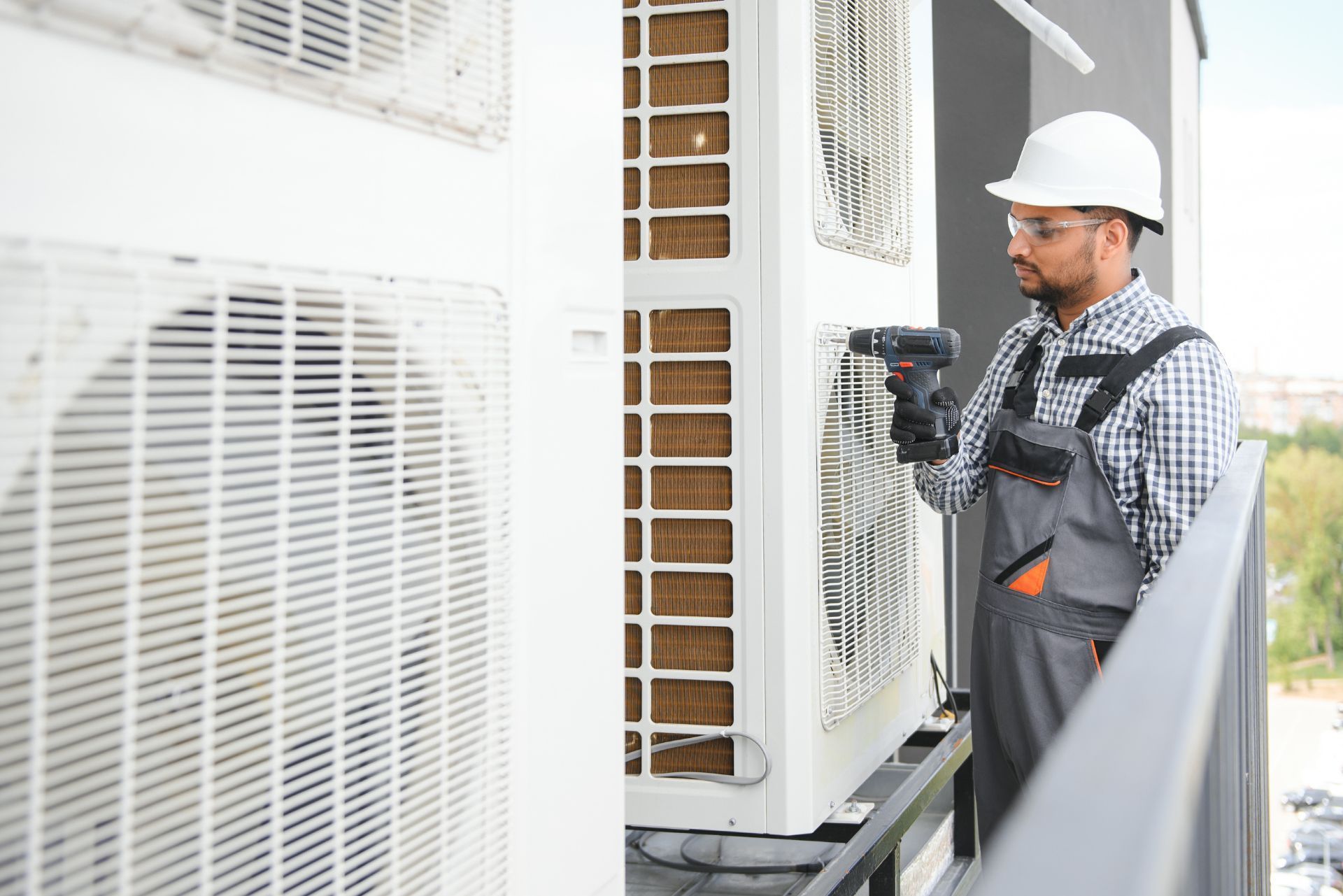
Managing Insurance Across Multiple Franchise Locations
One of the biggest challenges for franchise HVAC businesses is managing insurance consistently across all locations. Each site may have different local regulations, risk profiles, and coverage requirements. Coordinating policies to ensure comprehensive protection without overlap or gaps is essential.
Centralized insurance management can simplify this process. Franchise owners often work with brokers who specialize in multi-location businesses to customize policies that cover all operations under a single umbrella. This approach can also lead to cost savings through bundled policies. By leveraging the collective buying power of multiple locations, franchises can negotiate better terms and premiums, ensuring that they receive the best value for their insurance investments.
It’s important to regularly review coverage as the franchise grows or adds new services. Changes in business size, equipment, or service areas can impact insurance needs and premiums. Additionally, as new technologies emerge in the HVAC industry, such as energy-efficient systems or smart home integrations, franchise owners must consider how these advancements affect their risk profile. For instance, the introduction of new equipment may necessitate adjustments in liability coverage or property insurance to account for potential hazards associated with installation and maintenance.
Moreover, training staff on risk management practices can significantly reduce the likelihood of claims across all locations. Implementing standardized safety protocols and regular training sessions can foster a culture of safety that not only protects employees but also minimizes insurance costs. By proactively addressing potential risks, franchise owners can demonstrate to insurers that they are committed to maintaining a safe working environment, which may lead to lower premiums and better coverage options.
Why Choosing the Right Insurance Partner Matters
Not all insurance providers understand the nuances of franchise HVAC businesses. Selecting a partner with industry expertise ensures your coverage matches your risks and business model. Experienced agents can advise on the right policy limits, endorsements, and risk management strategies.
Working with a knowledgeable insurance partner also helps streamline claims processes and provides guidance on compliance with state and franchise requirements. This support can be invaluable when facing complex claims or regulatory audits.
Consider providers who offer tailored solutions and ongoing risk assessments to keep your coverage aligned with industry changes and business growth.
Coverage Comparison: General Liability vs. Professional Liability for HVAC Franchises
| Coverage Type | What It Covers | Why It Matters for HVAC Franchises |
|---|---|---|
| General Liability | Third-party bodily injury, property damage, and legal defense costs | Protects against accidents on job sites or client property that could lead to costly lawsuits |
| Professional Liability | Claims of negligence, errors, or faulty workmanship | Safeguards brand reputation and finances from claims related to service quality or design errors |
Frequently Asked Questions
Q: Do franchise HVAC businesses need different insurance than independent contractors?
A: Yes. Franchise businesses often have more complex operations and higher risks, so their insurance needs are broader and may include multi-location policies and additional coverage types.
Q: How often should I review my HVAC franchise insurance policies?
A: At least annually or whenever you add new locations, services, or equipment. Regular reviews ensure your coverage keeps pace with business changes.
Q: Can I bundle different insurance policies for my HVAC franchise?
A: Many insurers offer bundled packages that combine general liability, workers’ comp, and commercial auto insurance, often at a discounted rate.
Q: What factors influence the cost of insurance for an HVAC franchise?
A: Location, size of the business, number of employees, coverage limits, and claims history all affect premiums.
Q: Is equipment theft coverage necessary for HVAC franchises?
A: Absolutely. Tools and equipment are valuable and often targeted for theft, so specific coverage helps protect your investments.
Q: How does the technician shortage affect my insurance?
A: Fewer skilled workers can increase accident risks, potentially raising premiums or requiring stricter safety protocols.
Q: Can climate risks impact my HVAC franchise insurance?
A: Yes. Insurers are increasingly factoring in climate-related risks, which may affect coverage terms and pricing depending on your service area.
Before You Go
Insurance for franchise HVAC businesses is not one-size-fits-all. Understanding the unique risks, industry trends, and coverage options can make a significant difference in protecting your investment and ensuring long-term success. Take the time to evaluate your needs carefully, work with knowledgeable insurance partners, and stay informed about market changes. This approach will help you build a resilient business ready to handle whatever challenges come your way.
For a comprehensive look at insurance options tailored to HVAC businesses, visit
this resource.

About The Author: James Jenkins
I’m James Jenkins, Founder and CEO of HVACInsure. I work with HVAC contractors and related trades to simplify insurance and make coverage easier to understand. Every day, I help business owners secure reliable protection, issue certificates quickly, and stay compliant so their teams can keep working safely and confidently.
Recognized by National HVAC Trade Associations
These trusted organizations set best practices and standards that carriers rely on when underwriting HVAC risks.
Membership signifies adherence to HVAC industry standards and contractor best practices.
Reviews
HVAC Contractor Reviews of
We're trusted by HVAC contractors throughout the US. Check out what our clients have to say about HVACInsure:
Coverage for Crews, Vehicles, and Tools
Insurance for HVAC Contractors
We provide business insurance designed for HVAC contractors. These policies protect your crew, vehicles, and tools while helping you meet project requirements. Every policy is explained clearly and delivered quickly so you can work without delays.
Resources
Insurance Tips for HVAC Contractors
Our blog is built for contractors who want fast answers. Each article covers common questions and risks in under five minutes of reading.
Frequently Asked Question
Common HVAC Contractor Insurance Questions
These FAQs address common contractor questions. As HVACInsure grows, we will update this section with real client experiences and answers.
Why should an HVAC contractor use HVACInsure instead of a general agency?
Specialists understand jobsite requirements, certificate wording, and common endorsements for HVAC work. You get cleaner paperwork, faster approvals, and coverage that fits how your crews operate.
This reduces delays at the gate, avoids gaps, and helps you pass compliance checks the first time.
How fast can I get a Certificate of Insurance (COI)?
Most standard COIs are issued the same business day after binding or updates. If you need additional insured, primary/non-contributory, or waiver language, we prepare it correctly the first time.
Our goal is simple: get your crew on site without paperwork delays.
What coverages do HVAC contractors usually need?
Core policies include General Liability, Commercial Auto, Workers’ Comp, Property/Tools, Inland Marine, and Umbrella. Many projects require higher limits and specific endorsements.
We align your coverage with contract terms and explain each choice in plain language.
Will my tools and scheduled equipment be covered in vans or on jobsites?
Yes. Inland Marine (tools and equipment) can cover items in transit, stored in vehicles, or staged on site.
High-value items can be scheduled, and limits can match your daily field use to keep work moving.
Can I lower my premium without weakening protection?
Often, yes. Clean driver lists, accurate payrolls, safety programs, and bundling policies can help.
We review your profile, request carrier credits, and adjust limits and deductibles to control cost while meeting project requirements.
What should I do after a loss?
Contact us right away so we can file with the correct carrier and set expectations. We guide documentation, next steps, and follow-ups until closure.
Fast reporting and clear records help resolve claims sooner and keep your team focused on work.

Still have questions?
Can’t find the answer you’re looking for? Please chat to our friendly team!
Contact Us



